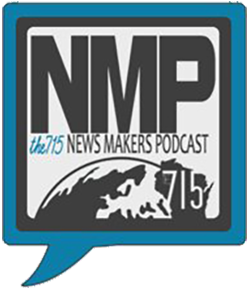“During my time as governor, I’ve visited homes across our state and heard from families who are asking us to help them prepare for flooding to keep their homes, farms, and businesses safe. This bill is an important step to give families and communities peace of mind and the tools they need to prevent flood damage in the future.”
-Gov Evers
Gov. Tony Evers, joined by authors and co-sponsors of the bill, local officials, and community members, signed Senate Bill 222, now 2023 Wisconsin Act 265, which requires Wisconsin Emergency Management (WEM), a division of the Wisconsin Department of Military Affairs, to create and administer a pre-disaster flood resilience grant program to provide grants for projects aimed at identifying and improving flood vulnerabilities and resilience priorities in local communities.
“We all know that Wisconsin is no stranger to natural disasters—especially flooding—and that extreme weather continues to have devastating effects on folks’ lives and livelihoods, costing Wisconsin families millions of dollars in damage to homes, businesses, local infrastructure, and the environment,” said Gov. Evers. “During my time as governor, I’ve visited homes across our state and heard from families who are asking us to help them prepare for flooding to keep their homes, farms, and businesses safe. This bill is an important step to give families and communities peace of mind and the tools they need to prevent flood damage in the future.”
Senate Bill 222, now 2023 Wisconsin Act 265:
- Requires WEM to create and administer a pre-disaster flood resilience grant program to provide grants to applicants for the purpose of identifying flood vulnerabilities, identifying options to improve flood resiliency, and restoring hydrology in order to reduce flood risk and damages in flood-prone communities;
- Allows grants of up to $300,000 per assessment grant and $250,000 per implementation grant to be made to local and Tribal governmental units, nonprofit organizations, or private consulting organizations applying on behalf of local governmental units; and
- Establishes that applications for a grant may be considered only if: (a) the application is for a project area that was the site of a presidentially declared disaster for flooding at any time in the ten years preceding the grant cycle, (b) the application is for a project area that was the site of a governor-declared state of emergency for flooding at any time in the ten years preceding the grant cycle, or (c) the application is for a local governmental unit that has a hazard mitigation plan that identifies localized exposure to flood risk approved by the division.


